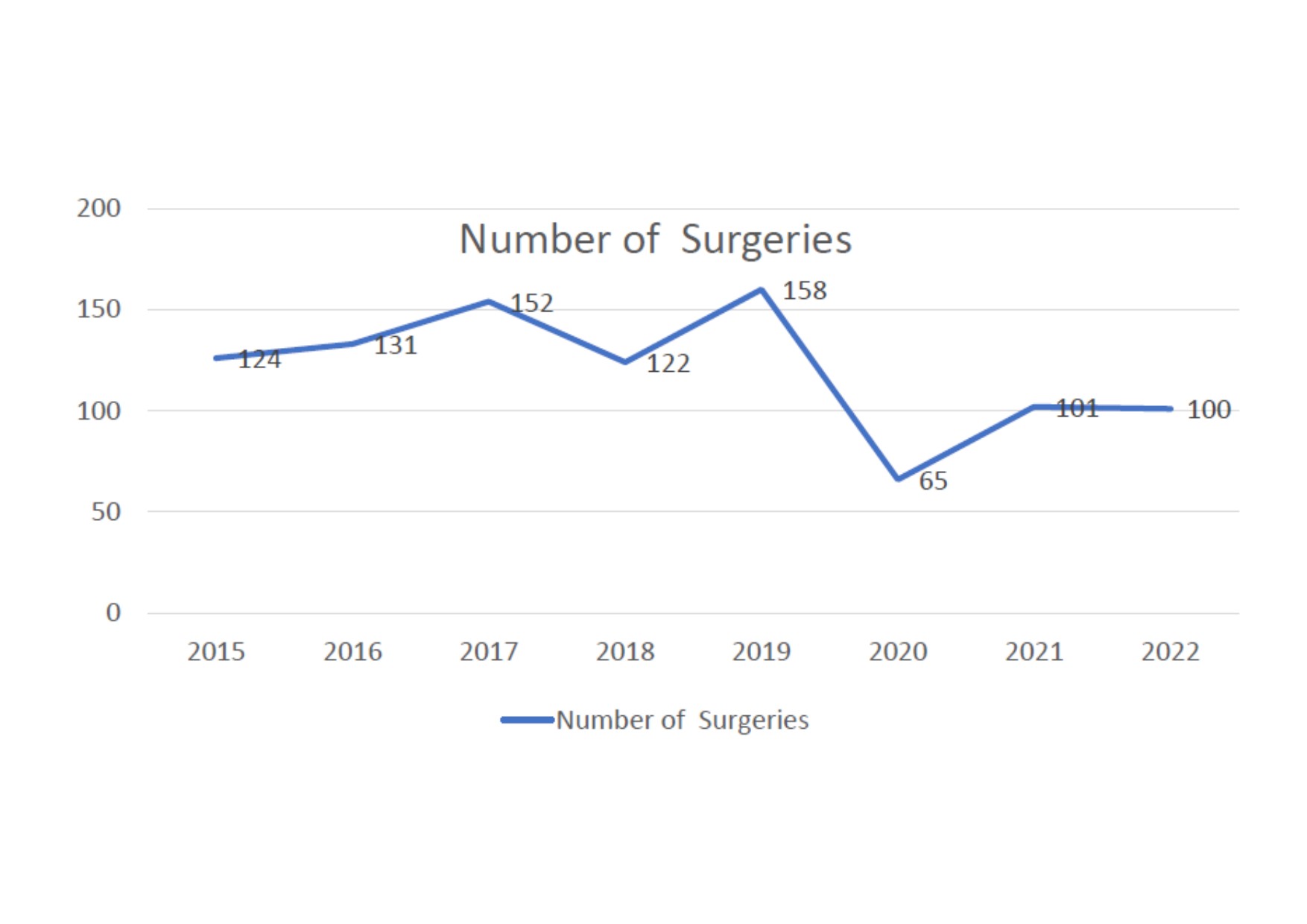PRIMARY CARE SURGERY IN FAMILY MEDICINE DEPARTMENT LAGOS STATE UNIVERSITY TEACHING HOSPITAL (LASUTH): A 7-YEAR REVIEW OF DAY CASE SURGERIES AND OUTCOMES
Primary care surgery
Abstract
Background: The World Health Organization (WHO) has identified the training of Family Physicians (FPs) as critical to meeting the primary care surgery needs of the underserved populations. Many countries including high income ones have reported increased health coverage for patients when FPs are equipped and allowed to perform procedures for common and life-saving medical conditions.
Objective: To review the surgeries performed by the Family Medicine department LASUTH and their outcome over a period of seven years and compare the outcomes with the standard.
Methodology: It was a retrospective review of records of patients who had surgeries and other procedures from 2015 to October 2022. A total of 1001 surgeries and procedures were carried out, however only 953 had the required information for analysis. Analysis was done using SPSS version 25.
Result: Majority of the patients (46.5%) were between the ages of 20-39 years. Over half (56.2%) of the patients were females. Excision biopsy for breast lump was the most common surgery (42.6 %) followed by Herniorrhaphy (29.5%) and Lipoma excision (12.3%). Majority of the histology reports were benign lesions, however there were six masses excised.
Conclusion: The findings from this review reinforces the critical role of family physicians in providing surgical care especially in this era of shortage of surgeons in Nigeria and worldwide. Primary surgery is an essential part of Family Medicine curriculum and its practice should be encouraged to get best outcomes as part of multidisciplinary care.





